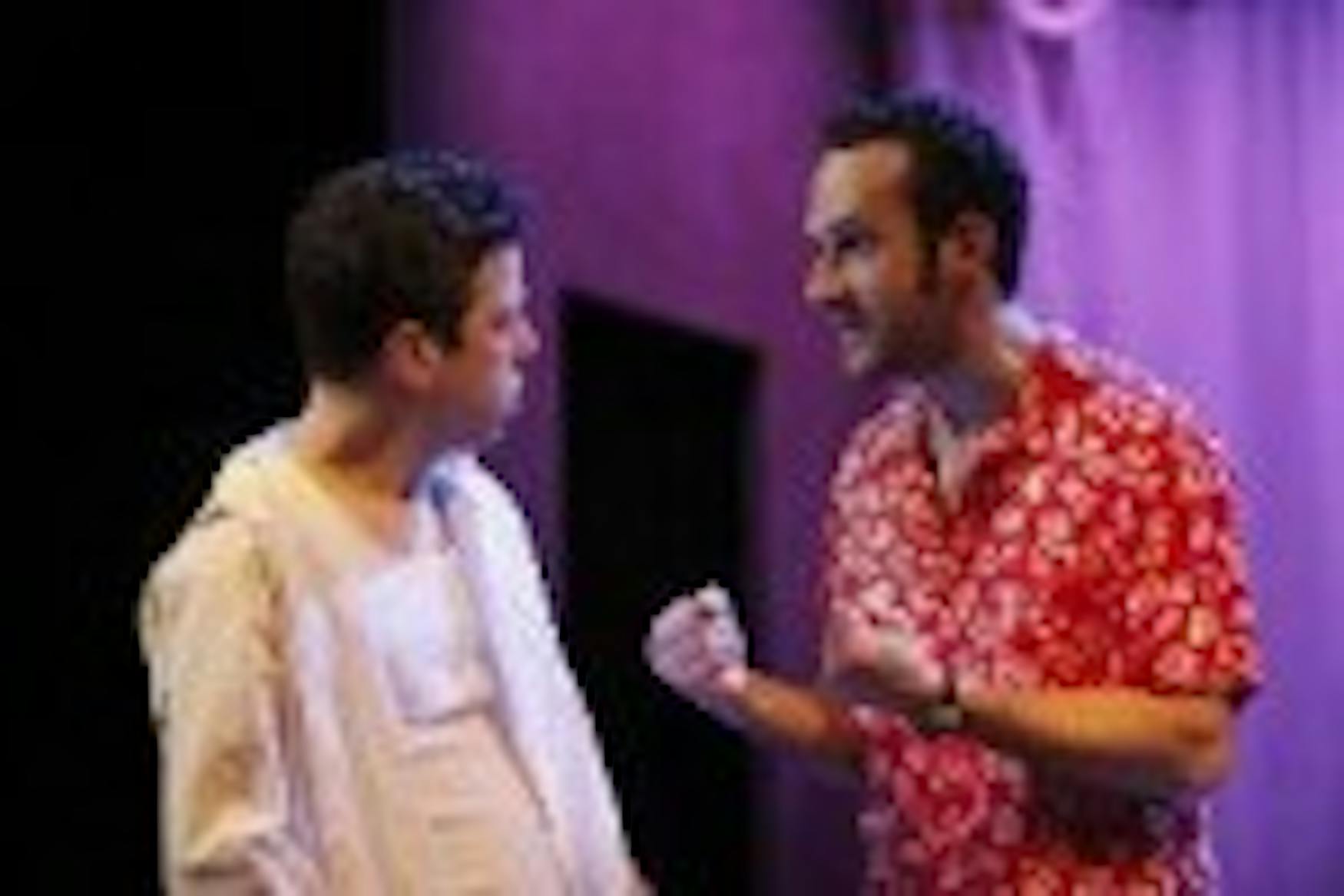BTC's 'Cocktail' proves intoxicating brew
Cocktail Time in Cuba by award-winning playwright Rogelio Martinez is the story of an American journalist named Michael who is trying to pull together pieces of his life as they all crumble apart. He hasn't written for a credible magazine for months, his relationship with his wife is essentially in shambles, his contact who promised a meeting with Fidel Castro suddenly dies in a truck accident, and nothing is going the way that he planned. He's come to Havana to write the article of his life, but the world seems to be plotting against him. The stage was spare: yellowing curtains framing the back with a simple wooden outline to enclose the performance area. No other significant background drops were used save two sandy-colored walls on the sides with simple rectangular cutouts for doors. The props were worn and old-not particularly Cuban, but overall in stride with the rustic feel of the set. The lights were warm and yellow, bringing to mind the soft and balmy tones of the Cuban sun and sand. No one would want to leave the Caribbean beaches, but the feeling the set evoked was not so much a warm vacation area as a humid prison. The constancy of the yellow light was an inescapable reminder of where the characters were and how quickly time slips by if every day is the same. I give much commendation to the director and all of the show's designers for this very minimalist but effective execution of scenic artistry.
The cast, as is usual with the Brandeis Theater Company, was well-suited to the play. Benjamin Rosenblatt (GRAD), who played Michael, finely portrayed a man who was a little here, a little there and generally nervous and reactive. His energetic performance balanced out that of Robert McFadyen's (GRAD) who played the lanky, imperturbable and opportunistic Henry. Though Henry was not as multifaceted a character as Michael, and though McFadyen's inherent talents weren't able to shine in such a narrow role, he still performed with a relaxedness and ease in character that only comes with years of training and a natural flair for acting. Marisela, Michael's Cuban love interest, played by McCaela Donovan (GRAD), was a sultry and fiery Latina with an air of mystery around her. But Donovan also gives her character a depth beyond what the role demanded, a kind of spark that makes Marisela a more memorable and genuine woman. The speech given by Johnnie L. McQuarley (GRAD) as he played the purported Castro (whether he was really Castro or not is debatable), was engaging and also humorous at the same time. His monologue was the most emotional and moving part of the whole play. The cast is rounded out by Equiano Mosieri (GRAD), who played with great believability the intimidating yet backhandedly benevolent Ruben. Finally there is Levi Rion Ben-Israel (GRAD), who played many different characters. None of them had many spoken words, but his characters each had a gripping stage presence-even the statue.
One notable aspect of the theatrical artistry was the contrast between the sleepier speed of the scenes and the sudden alarming transitions. The ends of the scenes were accompanied by a loud screeching sound, like the rewinding of a tape recorder. Most of the time, the sounds were indistinguishable and disconcerting. But they paralleled what was happening to Michael during his time in Cuba. He keeps being wrenched away from his plans and expectations for his stay, often by surprises and unwanted news. The junction of the two created a very effective way of keeping the audience's attention, in the vein of Haydn's Surprise Symphony. However, something about the scenes lacked a certain dynamism. One would feel as if the scenes dragged a bit, as if the Cuban heat itself was slowing the action down. And yet combining what should be moving and emotional times, like a surprise pregnancy, Michael's darker past or Marisela's desperate pleas for Michael to stay with the tired movement of the scenes softened the blows of the revelations and left the emotional shockers to the transitional whirs.
However, just as Michael says to Castro, "Your vanity isn't allowing anyone to live their lives," my own vanity isn't allowing me to fully appreciate this play. I don't particularly like the plot devices that were utilized during the second act; the loud transitions kept me jumping uncomfortably in my seat; and for the life of me, I couldn't understand the symbolism of staging scenes around the statue of John Lennon in a Cuban park. But then again, I'm a picky eater. If one enjoys political commentary, a unique storyline and natural-yet-driven dialogue, Cocktail Time in Cuba is a fine play to watch and mull over.



Please note All comments are eligible for publication in The Justice.